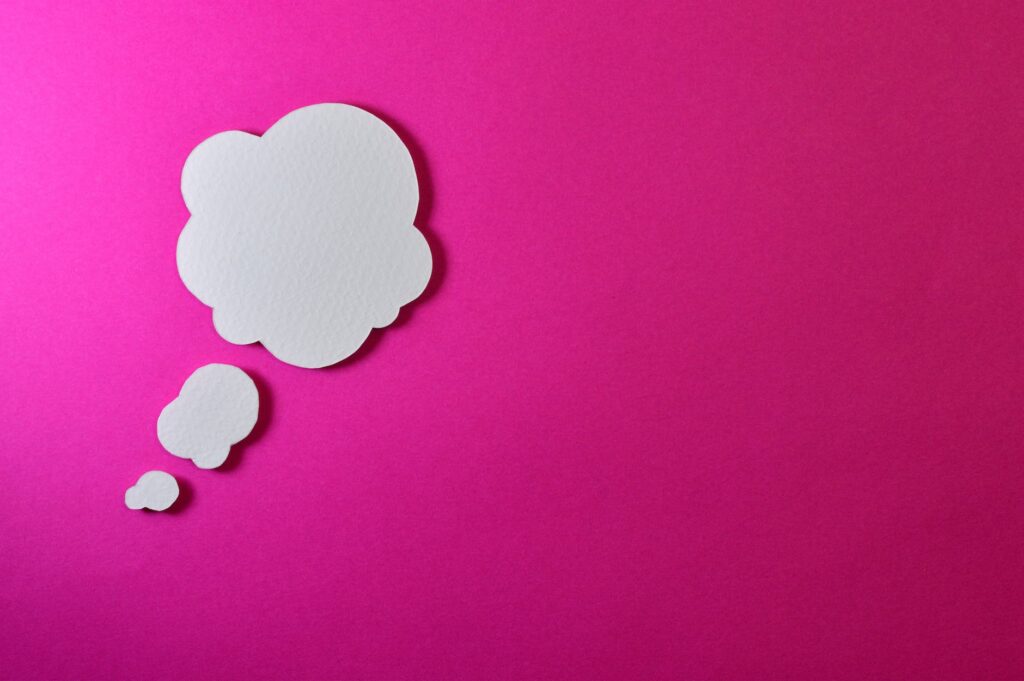Author’s Attempts at Fasting
Right before the benefits of fasting, to be honest about side-effects too. “All I have to say about my attempts at fasting alternate-day as intermittent fasting (IF) to begin with”: Says Jason Fung & Jimmy Moore (authors) and few others in the book: The complete guide to fasting. Fasting for twenty-four hours every other day—is ugh, ugh, and UGH! It lasted exactly four days, nineteen hours, and fifteen minutes.
The best read you’ll find here all about intermittent fasting and more. One of the authors of the book delighted to let you know how he felt in his attempts at fasting intermittently. So, true & an interesting read. In short this article is the highlight of the book: The complete guide to fasting. A copyright, In Hand Writer Khalid M. Raza gifted with this book’s content to let you know in short: The benefits of fasting and more. You can read the book available in the market for more information in detail. The attempts at fasting goes on.
To Begin With Attempts At Fasting
- 1. I was pretty addicted to caffeine still. That first day of fasting was painful because I had a massive headache for most of the day. By the second day, though, the headache had subsided.
- I hadn’t felt truly hungry in a long time. After losing 180 pounds, my philosophy had been to never allow myself to get hungry. So I didn’t slip back into those old eating habits. (Ironically, during my low-fat dieting days. All I did was have hunger pangs.) Now, listening to my body is beneficial because I don’t have the same food temptations.
- Being ravenously hungry made me overeat. At the end of my second fasting day, my wife Christine and I went to Steak & Ale for their all you-can-eat prime rib special. They were busy, so the steaks took longer to come to the table than they usually do. I was so hungry that I ate a whole plate of food.
- Eating enough food to fuel my daily workouts really was important. On day 1 of my fast, I tried to keep up the same resistance and speed on my elliptical workout, but it just didn’t happen.
- For me at the time, going without food for twenty-four hours was not realistic. On the first day my head was hurting so much from the caffeine withdrawals that I barely noticed how hungry and light-headed I felt. But on my second fasting day, I felt like I was floating around my office ready to tip over at any moment.
A Few Reasons Of What Went Wrong
Call me a wimp for not making it through even one whole week on the IF experiment. But it was just not for me. And there are a few reasons why?
First, I was still drinking diet sodas during the fast, and that stoked hunger and cravings that I wouldn’t have had otherwise. Second, I wasn’t getting enough salt during the fast, which led to fatigue and energy drain. Better than those diet sodas would have been bone broth with sea salt, which provides much-needed electrolytes and is satiating. Finally, I just didn’t have the right mindset.
I didn’t anticipate just how tough it would be at the beginning, I wasn’t prepared to handle the hunger. Both real and imagined.
After this attempt at IF (Intermittent Fasting) crashed and burned in a blaze of glory. I didn’t think I’d try it again. But then again few years later, after some gentle prodding from people like Robb Wolf and other IF advocates, I decided to give it another go. The attempts at fasting goes on.
Success on IF, and a Growing Ambition
During this second attempt, I gave myself eighteen to twenty hours between meals, and it was much better for me than going twenty-four hours between meals. In fact, it was quite easy eating a meal in the morning around 9:AM and then another around 2:PM as the totality of my food intake for the day— so I fasted between 2 p.m. one day and 9:AM the next day, about nineteen hours.
I even sometimes mixed it up and pushed my first meal to around 12:PM and then the second meal at 5:30PM for a shorter feeding window. I’ve then felt very comfortable doing this and it became very natural to me.
So, I hadn’t forgotten about the idea of an extended period of fasting as a way to boost my health. When I interviewed Dr. Thomas Seyfried on my podcast in 2009, he was adamant that a one-week fast would be beneficial as an annual cancer-prevention strategy. Of course, most people can’t (or, more realistically, won’t) do something like this. But what would it be like to actually try it for myself? Once IF started to come more naturally to me, I decided it might be time to push the total fasting time to an entire week. The attempts at fasting goes on.
My Confidence & Attempts At Fasting
Would I make it through a longer fast? I didn’t know at the time, but today I’m so glad I put aside my fears and gave it the old college try.
In addition to my growing ease with IF, two things gave me the confidence to try an extended fast. First, one of my blog readers, who had done three one-week fasts over the span of a year on the suggestion of his doctor to help with some prostate issues, shared something with me that put things into perspective.
Here’s what he said:
The way you experience yourself physically when you are fasting is practically identical to the way you experience yourself physically when you are eating. The reason this is so important is that when you think you experience hunger while eating normally, that same experience of hunger is present when you are fasting. In other words, the hunger sensations in fasting are the same as while eating normally.
You then have to ask yourself how you can be hungry when you have eaten three hours ago when it is the same hunger sensation when you have not eaten anything at all for a week. What we think is hunger is not really hunger. That impulse to eat cannot be taken seriously.
Wow! So if we can learn to view hunger in the right way, then we can be more resistant to the temptations that inevitably befall so many of us during fasting. As my reader so succinctly put it, “fasting allows you to reclaim your hunger for what it is [so] it no longer dictates what you put in your mouth.”
Now that’s a message I think we can all learn something from. By the way, the series of one-week fasts my reader completed were “tremendously successful” in treating those prostate issues he had. This helped convince me that fasting really is a powerful therapy.
Yes, 1 Week Fast Too Good
The second thing that propelled me to do a one-week fast was that I’d been learning a lot about all the benefits of being in a state of nutritional ketosis—and fasting and ketosis go together perfectly, like fish and eggs. When you eat a low-carb, moderate-protein, high-fat diet—a ketogenic diet—it becomes much easier to fast. The carbohydrate restriction and protein moderation helps to keep your blood sugar and insulin levels under control, and consuming adequate amounts of healthy saturated and monounsaturated fats keeps your hunger at bay.
And here’s the key to why keto is so great for fasting: being in ketosis teaches your body to burn fat for fuel rather than sugar, and since that’s what your body has to do during fasting, if you’re already in ketosis, your body is already using fuel the way it’s supposed to.
Think of it this way: You have at least 40,000 calories’ worth of fat on your body right now, but only 2,000 calories’ worth of sugar. If you’re a fat-burner, when you start fasting, your body simply continues to use fat as its primary fuel. If you’re a sugar-burner, though, your body burns those 2,000 calories of sugar until it’s all gone, and then it triggers hunger until it’s adapted to using fat.
Extended Fasting Take 1: A Week Without Food
I consciously chose to do one of the most unlikely things I’d ever done in nearly four decades of living: I embarked on a one-week fast—on purpose—just to see how I would do.
So many people asked at the time if I was doing it to lose weight? The answer was, not at all. Any weight loss on a complete extended fast (unlike on a regular IF routine) would not likely stay completely off once food was reintroduced. That’s not to say a few stubborn pounds of fat wouldn’t find a way to leave my body, and that’s never a bad thing. But my primary purpose was to monitor how I felt going without any food for a week.
I learned so much more than I could have ever imagined.
The physical experience of the fast
The first three days were some of the most difficult because my body was screaming at me to eat something. I felt spacey for much of the time, as if everything around me was running in slow motion. But at the same time, my thoughts were clear. I was fully functioning, despite having had no food. Honestly, I felt good for most of the time throughout the entire fast.
Days 4 and 5 were the best of the seven as I experienced the big whoosh of renewed energy that I had heard so many people share would happen. On day 6, though, I struggled early on with a strong desire to eat again. And by day 7, I felt absolutely horrible, like my blood sugar had dropped to a level that zapped me of all my energy. When I checked my blood sugar level. Saw a reading in the 50s and could barely stand up around 2:PM on the final day of the fast. I knew it was time to break it.
Effects on blood sugar and weight
I didn’t measure my blood sugar every single day, but the few times I did I saw readings in the 60s. Sure, this was below 80, the level I generally saw on my healthy low-carb lifestyle. But that’s what happens when you don’t eat any food at all. Controlling blood sugar and giving your pancreas a week to rest from producing insulin is an excellent reason for attempting a fast like this.
The first few days I lost about a pound a day, and then on days 4 to 7 I lost several pounds. While I wasn’t doing this to lose weight, it certainly produced a sizable drop on the scale: thirteen pounds in one week. I learned later that the weight loss on a one-week fast like this is mostly water weight because the fasting process depletes glycogen stores.
Exercising
Believe it or not, I decided to keep up with my exercise routine during my fasting week, and I did a whole lot better than I thought. I knew not to push it too hard, and I told my wife that if I started to feel dizzy or anything, I would stop. Even still, I played competitive volleyball twice and did a couple mild exercises with no problems. Although I was spacey on the volleyball court, I was able to perform quite well. Running, jumping, and blocking spikes in the front row!
The bathroom
Yes, I know it’s gross to talk about, but it’s a part of the fasting experience. I expected to visit it frequently in the first couple of days or so, but when I was still seeing massive amounts of “stuff” coming out late in the week, that was pretty freaky—after all, I hadn’t consumed anything in many days, so what was coming out?
It reminded me that there’s a lot more waste in the body than we even realize, and doing this fast may have helped clean a good bit of that out.
Nutritional supplements
I did not stop taking my regular supplements for the duration of the fast. Perhaps I could have given this routine a rest for a week, too, but I didn’t.
What Happens When We Eat?
Insulin has two major functions. First, it allows the body to immediately start using food energy. Carbohydrates are absorbed and rapidly turned into glucose, raising blood sugar levels. Insulin allows glucose to enter directly into most cells of the body, which use it for energy. Proteins are broken down into amino acids and absorbed, and excess amino acids may also be turned into glucose. Protein does not raise blood glucose, but it can raise insulin levels.
Second, insulin helps store the excess energy. There are two ways to store the energy. Glucose molecules can be linked into long chains called glycogen and then stored in the liver. There is, however, a limit to the amount of glycogen that can be stored away. Once this limit is reached, the body starts to turn glucose into fat. This process is called de novo lipogenesis (literally, “making fat from new”).
This newly created fat can be stored in the liver or in fat deposits in the body. Turning glucose into fat is a more complicated process than storing it as glycogen. There is no limit to the amount of fat that can be created.
What Happens After Attempts At Fasting?
The process of using and storing food energy that occurs when we eat goes in reverse when we fast. Insulin levels drop, signaling the body to start burning stored energy. Glycogen (the glucose that’s stored in the liver) is the most easily accessible energy source, and the liver stores enough to provide energy for twenty-four hours or so. After that, the body starts to break down stored body fat for energy.
So you see, the body really only exists in two states—the fed (high-insulin) state and the fasted (low insulin) state. Either we are storing food energy or we are burning food energy. If eating and fasting are balanced, then there is no net weight gain.
If, however, we spend the majority of the day storing food energy (because we’re in the fed state), then over time, we will gain weight. What is needed then is to restore balance by increasing the amount of time we burn food energy (by going into the fasted state).
The transition from the fed state to the fasted state occurs in several stages, as classically described by George Cahill, one of the leading experts in fasting physiology: Read More On: The Complete Guide To Fasting: Book published in Canada. Read & do the attempts at fasting.
How We Report Posts Like Attempts At Fasting…, Etc.
We do not pay attention to report posts lengthy. However, we’ve posts of 2000 words to 7000 words. Our intention is to consume lesser time of our readers for them to go through our site experiencing different topics. So, we stopped adding more content to our posts in order to make our readers do not read more than what’s required…
You should be aware of what’s happening rather than read more without understanding the main issues. We’re an independent channel. Do keep visiting us frequently and search with your choicest words with the use of our search box. You can read many topics in quick time and much more different content like, News, Scripts, Poetry, Lyrics, eBooks, etc.





